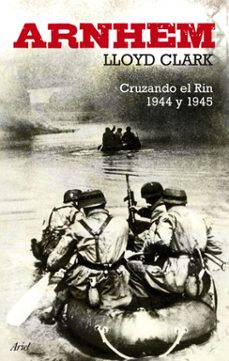Imprescindibles
Más vendidos Libros más leídos eBooks más leídos Todos los libros Todos los libros Autores destacados Series y sagas
Recomendados Libros recomendados Autores destacados Libros que inspiran Vidas con historia LGTBIQ+ English books
Ficción
Literatura Contemporánea Estudios literarios Clásicos Cuentos Poesía Teatro Libros de bolsillo Sagas literarias
Géneros literarios Novela romántica y erótica Novela negra Novela histórica Narrativa fantástica Novela de ciencia ficción Novela de terror Narrativa de humor Narrativa de viajes
No Ficción
Ciencias y tecnología Biología Ciencias Ciencias naturales Divulgación científica Informática Ingeniería Matemáticas Medicina Salud y dietas Formación Idiomas Estilo de vida Libros de Cocina Guías de viaje Narrativa de viajes Deportes Libros de Juegos Manualidades
Humanidades Autoayuda y espiritualidad Ciencias humanas Derecho Economía y Empresa Psicología y Pedagogía Filosofía Sociología Filología Biblioteconomía Estudios filológicos Estudios lingüísticos Estudios literarios Historia y crítica de la Literatura
Infantil
Juvenil
#Jóvenes lectores Narrativa juvenil Clásicos adaptados Libros Wattpad Libros Booktok Libros de influencers Libros de Youtubers Libros Spicy Juveniles Libros LGTBIQ+ Temas sociales Libros ciencia ficción Libros de acción y aventura Cómic y Manga Juvenil Cómic Juvenil Manga Shonen Manga Shojo Autores destacados Jennifer L. Armentrout Eloy Moreno Nerea Llanes Hannah Nicole Maehrer
Libros de fantasía Cozy Fantasy Dark academia Hadas y Fae Romantasy Royal Fantasy Urban Fantasy Vampiros y hombres lobo Otros Misterio y terror Cozy mistery Policiaca Spooky Terror Thriller y suspense Otros
Libros románticos y de amor Dark Romance Clean Romance Cowboy Romance Mafia y amor Romance dramatico Romcom Sport Romance Otros Clichés Enemies to Lovers Friends to Lovers Hermanastros Slow Burn Fake Dating Triángulo amoroso
Cómic y Manga
Novela gráfica Novela gráfica americana Novela gráfica europea Novela gráfica de otros países Personajes, series y sagas Series y sagas Star Wars Superhéroes Cómics DC Cómics Marvel Cómics otros superhéroes Cómics Valiant
Cómics Libros de ilustración Cómic de humor Cómic erótico Historia y técnica del cómic Cómic infantil y juvenil Cómic infantil Cómic juvenil
Top más leídos
Audiolibros
eBooks
Literatura Contemporánea Narrativa fantástica Novela de ciencia ficción Novela de terror Novela histórica Novela negra Novela romántica y erótica Juvenil Más de 13 años Más de 15 años Infantil eBooks infantiles
Humanidades Autoayuda y espiritualidad Ciencias humanas Economía y Empresa Psicología y Pedagogía Filosofía Historia Historia de España Historia Universal Arte Cine Música Historia del arte
Ciencia y tecnología Ciencias naturales Divulgación científica Medicina Salud y dietas Filología Estudios lingüísticos Estudios literarios Historia y crítica de la Literatura Estilo de vida Cocina Guías de viaje Ocio y deportes
Lloyd Clark
Recibe novedades de LLOYD CLARK directamente en tu email
Filtros
Del 1 al 5 de 5
Editorial Pasado y Presente 9788494619328
Libro de lectura amena y trepidante, en la línea de Beevor, Vinogradova o Bergstrom, que se apoya en abundante material inédito y entrevistas a supervivientes. Incluye mapas e imágenes inéditas. «Lloyd Clark ha llevado a cabo una nueva aproximación lúcida, vívida y provocativa. Su detallada y rompedora investigación se convertirá en el trabajo seminal de la caída de Francia en 1940…Blitzkrieg es un libro mayúsculo.» ROBERT KERSHAW
Ver más
Tapa blanda
Atlantic Books 9780857897312
Born between 1885 and 1891, George Patton, Bernard Montgomery and Erwin Rommel all participated in the First World War and, like millions of others, were so affected by their wartime experiences that it became a fundamental influence on their lives. Yet none of the men were dissuaded by the carnage from seeking military careers when the guns finally fell silent. Each became wholly dedicated to the profession of arms and, being exceptional officers and leaders, they prospered.Despite the broad similarities between them, there were some marked differences in their approach to leadership due to the individuality bestowed on them from their genes, upbringing, life experience and relationships. Triumph reveals how these stimuli created three unique personalities which, in turn, each man came to draw from when they became among the most prominent officers in their armies.Exploring the many and various influences that shaped these three officers as men, as soldiers and, principally, as leaders, Lloyd Clark tracks their progress - through war and peace - all the way up to their final confrontation on the battlefields of the Second World War.
Ver más
eBook
Atlantic Books 9781782397427
The German campaign in France during the summer of 1940 was pivotal to Hitlers ambitions and fundamentally affected the course of the Second World War. Having squabbled about fighting methods right up to the start of the campaign, the German forces provided the Fuhrer with a swift, efficient and decisive military victory over the Allied forces.In achieving in just six weeks what their fathers had failed to accomplish during the four years of the First World War, Germany altered the balance of power in Europe at a stroke. Yet, as Lloyd Clark shows in this enthralling new book, it was far from a foregone conclusion. Blitzkrieg tells the story of the campaign, while highlighting the key technologies, decisions and events that led to German success, and details the mistakes, good fortune and chronic weaknesses in their planning process and approach to war fighting. There are also compelling portraits of the officers who played key roles, including Heinz Guderian, Erwin Rommel, Kurt Student, Charles de Gaulle and Bernard Montgomery.Clark argues that far from being undefeatable, the France 1940 campaign revealed Germany and its armed forces to be highly vulnerable - a fact dismissed by Hitler as he began to plan for his invasion of the Soviet Union - and offers a gripping reassessment of the myths that have built up around one of the Second World Wars greatest military victories.
Ver más
eBook
Editorial Ariel 9788434487901
Anzio, Italia, a las 02.00 horas del 22 de enero de 1944, la quietud de la noche se vio rota por explosiones y ruidos de motores en las playas: el desembarco aliado había comenzado. La de Anzio fue una de las mas encarnizadas de la Segunda Guerra Mundial. El desembarco de tropas norteamericanas y britanicas cerca de Roma fue un osado intento de romper las defensas alemanas que bloqueaban el avance hacia la capital. Fue una operacion que provoco tensiones entre los mandos militares y los lideres politicos en Washington y Londres, y que supuso una durisima lucha por la supervivencia para los soldados que desembarcaron en las costas italianas. Basandose en las experiencias de primera mano de soldados aliados y alemanes, oficiales y politicos. Lloyd Clark desvela la estrategia y los preparativos de la ofensiva, el desembarco, el afianzamiento de las posiciones defensivas aliadas, los momentos de incertidumbre sobre quien se haria con la victoria y finalmente la liberacion de Roma en junio de 1944. Pero el autor va mucho mas alla de la mera descripcion de la estrategia militar, aborda tambien la realidad humana de la batalla, desde el alto mando hasta la tropa de infanteria, y por primera vez en un libro sobre Anzio, describe los acontecimientos tambien desde el punto de vista de
Ver más
Tapa blanda
Editorial Ariel 9788434488298
En septiembre de 1944 el río Rin era una barrera crucial para el avance del ejército de los Aliados hacia el este en su intento de cargar contra Berlín y poner fin a la guerra. El General Marshal Bernard Montgomery decidio utilizar la Primera Fuerza Aerea Armada, formada por tropas britanicas, americanas y polacas y le dio el nombre en clave de Operacion Market Garden. 40.000 hombres saltaron detras de las lineas enemigas mientras las fuerzas terrestres intentaba llegar para unirse a ellos, pero el mal tiempo y la resistencia alemana hicieron fracasar la operacion. En marzo de 1945 se llevo a cabo un segundo intento. De nuevo Montgomery lidero el asalto y las tropas de tierra fueron utilizadas para cruzar el rio mientras los paracaidistas saltaban a una zona segura al este del rio Rin. Esta vez el plan funciono. A pesar de la extrema dureza de la batalla, la combinacion aerea y terrestre consiguio sus objetivos y rompio la linea alemana.
Ver más
Tapa blanda
Del 1 al 5 de 5





























